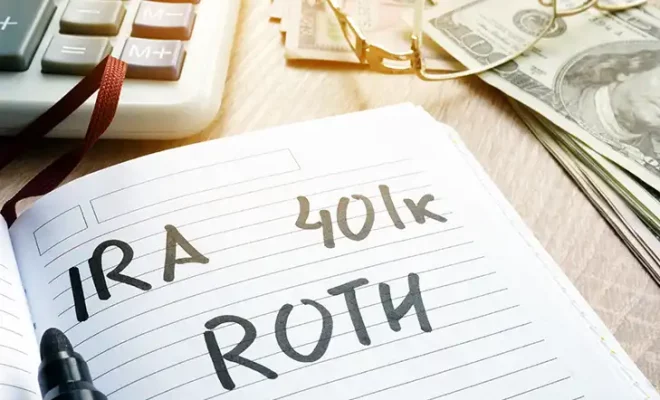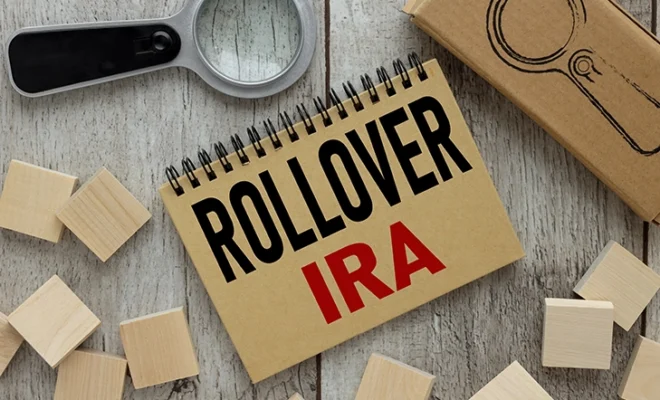Can You Have a 401(k) and a Roth IRA?

401(k)s and Roth IRAs are some of the most commonly used retirement accounts. Some opt for a 401(k) account simply because it comes with the advantage of getting an employer match, while some go for a Roth IRA account to be able to make tax-free withdrawals in retirement. Both Roth IRA and 401(k) accounts come with their unique set of benefits, offering highly lucrative retirement saving options to their account holders. However, can you have a Roth IRA and a 401(k) account at the same time? Yes, you can. You can opt for both 401(k) and Roth IRA accounts and make contributions to the said accounts provided you adhere to the rules set by the Internal Revenue Service (IRS). If you wish to learn about the various tax benefits, taxability, and contribution rules of 401(k)s and Roth IRA accounts, consult with a professional financial advisor who can advise you on the same.
Let us explore how you can hold both 401(k) and Roth IRA accounts and enjoy their benefits at the same time:
What is a 401(k) account?
A 401(k) is one of the most widely used retirement savings accounts offered to employees by their employers. Herein, a certain amount is deducted from your paycheck directly and sent to an investment account. This is a tax-deferred investment account, meaning you will only have to pay taxes on the money when you withdraw it after you turn 59½.
One of the most significant advantages of having a 401(k) account are the tax management benefits.
Essentially, your taxable income is reduced, since a portion of it is deposited into an investment account. Thus, you end up paying fewer taxes on your income. For example, if you earn $50,000 in a year and contribute $5,000 per annum to your 401(k) account, you will have to pay income tax on $45,000 and not $50,000. For 2022, the IRS allows taxpayers to contribute up to $20,500 to their 401(k) accounts. If you are over 50 years of age, you can contribute an additional $6,500 to your 401(k) account, bringing your effective 401(k) contribution to $27,000 per annum.
Your employer can match your contributions in a traditional 401(k) account. Each company has different policies about the employer matching the employee contribution. However, you may want to take advantage of your employer’s match to boost your retirement corpus.
Next, we’ll understand what a Roth IRA is and how much you can put in a Roth IRA.
What is a Roth IRA?
A Roth IRA account is a tax-free retirement savings account which allows your money to grow tax-free. You contribute after-tax dollars to be able to make tax-free withdrawals in retirement subject to certain conditions i.e. you must be 59.5 years of age and must have held your Roth account for at least five years. For 2022, the Roth IRA contribution limit is set at $6,000 by the IRS. If you are over 50 years old, you can make an additional catch-up contribution of $1,000 to your Roth IRA account bringing your total to $7,000. This is highly advantageous, since income tax slabs have historically seen an upward trend and are likely to increase over the coming years. Now while the 401(k) is an employee-sponsored retirement plan, the Roth IRA account is available to all Americans regardless of their employer sponsoring the programme. You can withdraw from your Roth IRA account before you turn 59½ years but you need to keep in mind that you can only withdraw the contribution amount and not the earnings if you want to avoid paying penalties.
Another significant benefit of having a Roth IRA account is not having to take required minimum distributions (RMDs). What’s more, your heirs can inherit your Roth IRA account and the ensuing money without paying any taxes on it since you contributed after-tax dollars. This is a crucial edge Roth IRA account holders enjoy over 401(k) account holders. On the contrary, If you have a 401(k) account, your heirs will have to pay taxes on the withdrawals based on the prevalent income tax slabs and norms.
How to have a 401(k) and Roth IRA account at the same time
Contributing to both 401(k) and Roth IRA accounts can help maximize the effectiveness of your retirement strategy since you can enjoy the twin benefits of tax-deferred growth and tax-free growth at the same time. To get both types of accounts, you first need to open a 401(k) account through your employer. In case your employer does not offer a 401(k) plan, you can still open an account on your own. Once you have opened and funded your 401(k) account, you can open a Roth IRA account.
Note that there are certain limitations to keep in mind when having both these accounts. The first being contribution limits. For 2022, the contribution limit for your 401(k) is $20,500. If you are over 50 years of age, you can contribute an additional $6,500 to your account. For 2022, the Roth IRA contribution limit is $6,000. If you are over 50 years, you can contribute an additional $1,000 to your Roth IRA account.
While you are allowed to have both types of accounts and make contributions simultaneously, your income should not cross a certain threshold for you to be able to make Roth IRA contributions. If your modified adjusted gross income (MAGI) for 2022 is $129,000 or less as a single filer, you can make full contribution to your Roth IRA. However, if your MAGI is between $130,500 and $144,000 as a single filer, you can partially contribute to your Roth IRA. You cannot make any Roth IRA contributions if your MAGI is over $144,000 as a single filer.
For married couples filing jointly, you can make the full contribution to your Roth IRA if your MAGI is less than $204,000. If your MAGI is between $205,000 and $214,000, you can partially contribute to your Roth IRA. You cannot make any Roth IRA contributions if your MAGI is over $214,000.
If you have both a 401(k) account and a Roth IRA account, it’s important to be mindful of the above mentioned contribution limits for each account. The contribution limits prevent you from over-contributing and incurring penalties. Ensure that you keep track of your contributions and do not exceed the contribution limit for either account.
Now that you understand both 401(k) and Roth IRA accounts and their contribution limits, let us discuss their advantages.
What are the advantages of having both 401(k) and Roth IRA accounts?
Here are some advantages you get when you hold both 401(k) account and Roth IRA accounts –
1. Reduce taxable income
401(k) contributions are made with pre-tax dollars, which can help reduce your taxable income. Roth IRA contributions consist of after-tax dollars, making qualified withdrawals tax-free. This means that you may be able to lower your overall tax bill by holding both types of accounts.
2. Maximize retirement savings
By having both types of accounts, you can take advantage of the annual contribution limits for each account. This can help boost your retirement savings and reach your financial goals sooner.
3. Flexibility in retirement
Investing in both 401(k) and Roth IRA accounts will offer you more flexibility in retirement. With a 401(k), you are required to start taking distributions at age 72. With a Roth IRA, you are not required to take distributions at any age. This means that you can let your Roth IRA grow tax-free for as long as possible. You can also use the funds in your Roth IRA to cover unexpected expenses in retirement without incurring penalties.
4. Employer match
Along with the benefits of a Roth IRA, you get the benefit of employer contribution when you have a 401(k) account. Employers generally match a certain percentage of employee contributions up to a specific limit. This can be a great way to boost your retirement savings.
To conclude
Having both a 401(k) and Roth IRA can offer you comfort and peace of mind during your retirement years. You enjoy the tax advantages of both an employer-sponsored retirement plan and an independent retirement plan allowing you to significantly boost your retirement corpus and live comfortably in retirement. Ensure that you monitor your contribution limits and be aware of RMDs, withdrawals and penalties to avoid incurring them. Reach out to a professional if you require any help with understanding the finer points of having both these retirement accounts and how to maximize their benefits.
Use the free advisor match tool to match with an experienced and certified financial advisor who will be able to guide you effectively on the taxability, contribution limits, and benefits of having both 401(k)s and Roth IRAs. Give us basic details about yourself, and WiserAdvisor will match you with 1-3 professional financial fiduciaries that may be suited to help you.
For further information on the most suitable retirement saving accounts and plans that fit your financial requirements, visit Dash Investments or email me directly at dash@dashinvestments.com.
About Dash Investments
Dash Investments is privately owned by Jonathan Dash and is an independent investment advisory firm, managing private client accounts for individuals and families across America. As a Registered Investment Advisor (RIA) firm with the SEC, they are fiduciaries who put clients’ interests ahead of everything else.
Dash Investments offers a full range of investment advisory and financial services, which are tailored to each client’s unique needs providing institutional-caliber money management services that are based upon a solid, proven research approach. Additionally, each client receives comprehensive financial planning to ensure they are moving toward their financial goals.
CEO & Chief Investment Officer Jonathan Dash has been profiled by The Wall Street Journal, Barron’s, and CNBC as a leader in the investment industry with a track record of creating value for his firm’s clients.













